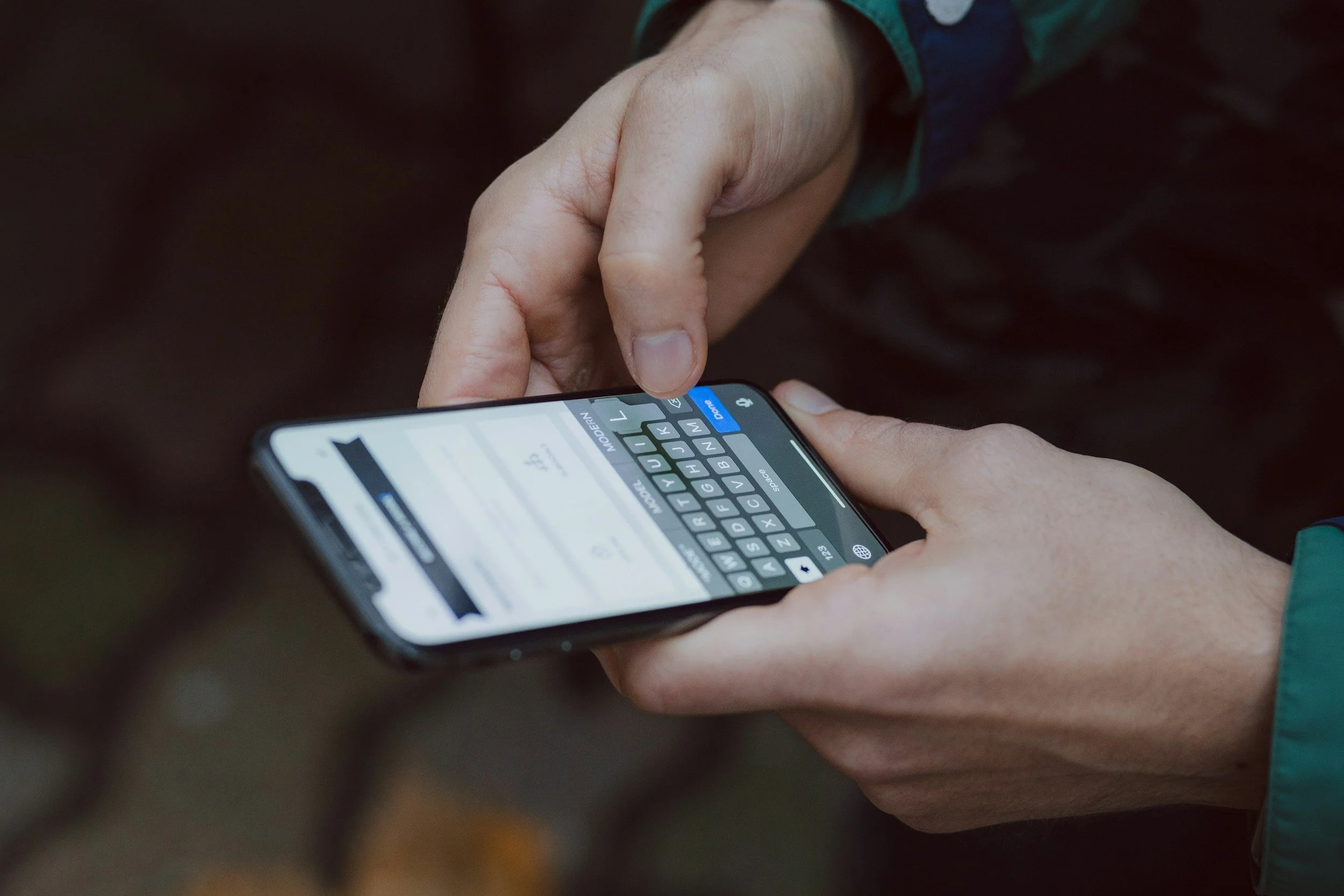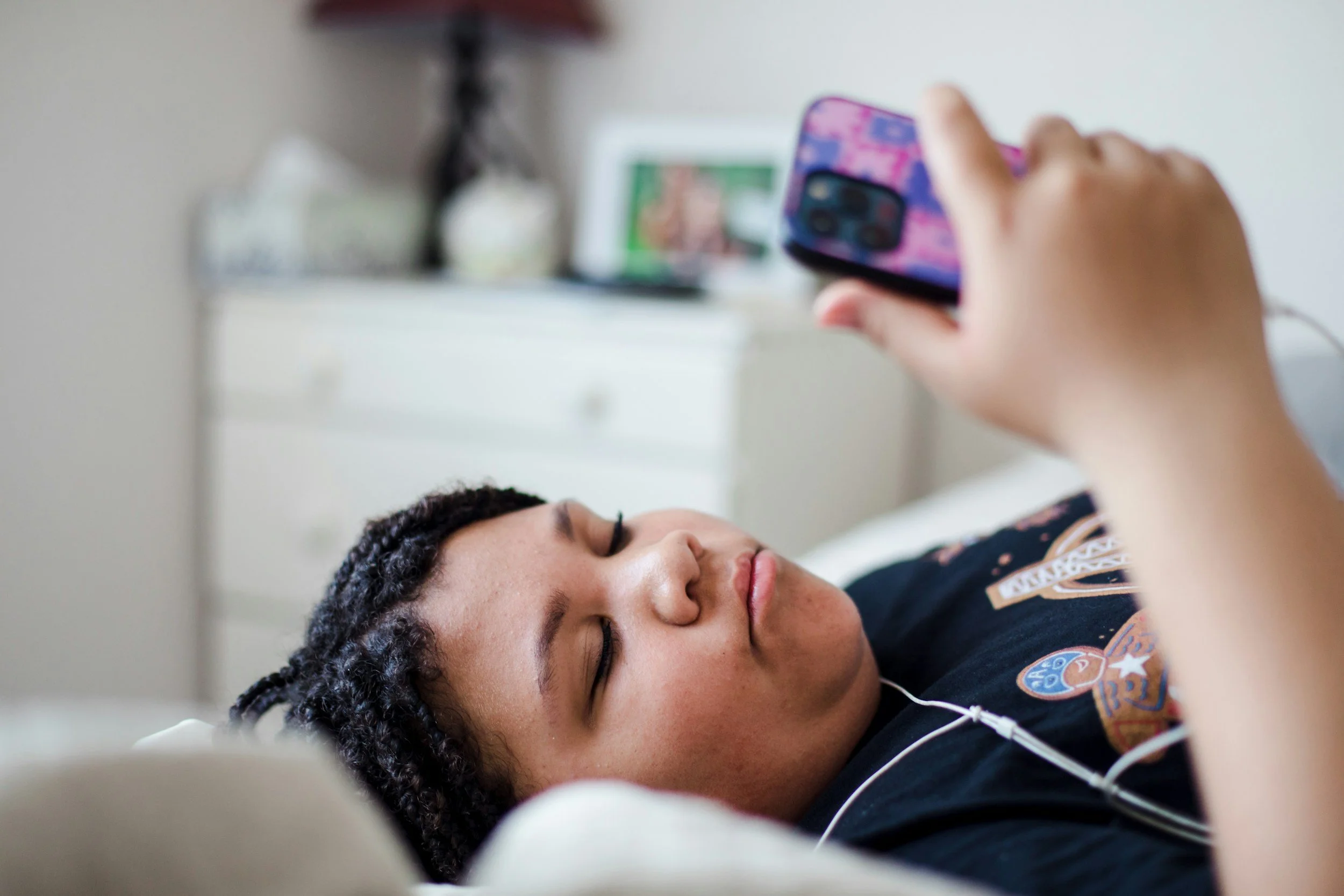The Hidden Impact of Our Phones: How Awareness Can Heal Our Minds and Emotions
Let’s be honest, our phones are practically glued to our hands. We use them to text friends, scroll through social media, check the weather, or escape a stressful moment. They connect us, entertain us, and help us stay informed.
But they also do something quieter, something we don’t always notice until we feel drained, anxious, or emotionally off-balance.
More and more research is showing that our phone and social media habits are deeply tied to our mental and emotional health. And while the answer isn’t to throw our phones away, it is to become more aware of how they affect us, so we can use them mindfully and stay emotionally grounded.
Let’s explore what science is saying and how we can use that knowledge to reconnect with ourselves in a healthier way.
What Research Tells Us About Phones and Mental Health
A few recent studies have painted a clear picture: the more we rely on our phones, especially social media, the more it can affect our mood, focus, and sleep.
1. Phones and the Brain
A review called “Smartphones and Cognition” found that heavy phone use can make it harder to focus, remember things, or solve problems. Our brains get used to constant interruptions of notifications, messages, and endless scrolling to where we start craving stimulation. Even when we’re not on our phones, our attention is split because part of us is waiting for the next buzz or ping.
2. Phones and Emotions
Another study, “Excessive Smartphone Use is Associated with Depression, Anxiety, Stress, and Sleep Quality of Australian Adults,” showed that high phone use is linked to more depression, anxiety, stress, and poor sleep. The more time people spent on their phones, the stronger these symptoms became, in what researchers called a dose-dependent way. In other words, the more time we spend, the worse we tend to feel.
Late-night scrolling can also mess with our sleep, which makes emotional regulation even harder. Poor sleep can increase stress hormones and make us more reactive to daily challenges.
3. Phones After COVID
After the pandemic, another study, “The impact of smartphone addiction on mental health and its relationship with life satisfaction in the post-COVID-19 era,” found that people were using their phones even more, often to cope with loneliness or anxiety. But instead of helping, this kind of “escape use” made things worse over time. It led to more negative emotions and less life satisfaction.
When we use our phones to avoid stress, boredom, or sadness, it can trap us in a loop: momentary relief, followed by emptiness or guilt, then more scrolling to fill the void.
Why We Turn to Our Phones
We often reach for our phones when we feel uncomfortable, anxious, bored, sad, or uncertain. Scrolling, watching, or texting gives us quick relief. It’s a way of numbing or distracting ourselves, and that’s completely human.
But the problem is that relief doesn’t last. We end up feeding the same feelings we’re trying to escape. Over time, this pattern can make it harder to sit with our emotions, harder to regulate them, and harder to find peace without our phones.
How to Know When It’s Affecting You
Here are a few subtle signs your phone habits might be impacting your emotional well-being:
You feel anxious or restless when you can’t check your phone.
You scroll for “just a minute,” then suddenly an hour has passed.
You compare your life to others online and feel less satisfied.
You feel emotionally flat, tired, or overstimulated after being online.
You have trouble sleeping because you’re scrolling late at night.
If any of this sounds familiar, you’re not alone. The goal isn’t to judge yourself, it’s to notice. Awareness is always the first step to healing.
Practicing Mindfulness with Your Phone
Mindfulness isn’t just meditation; it’s the simple act of noticing what’s happening inside and around you in the present moment.
You can bring mindfulness to your phone use by checking in with yourself:
Pause before you open an app. Ask, “What am I feeling right now? What do I actually need?” Sometimes it’s connection, but sometimes it’s rest, movement, or silence.
Notice your body. Does scrolling make your chest feel tight? Do you feel tense, restless, or numb?
Set gentle boundaries. Try phone-free meals, no scrolling after a certain time, or a “digital sunset” an hour before bed.
Use mindful transitions. Instead of grabbing your phone first thing in the morning, take three deep breaths, stretch, or say one thing you’re grateful for.
Each time you pause, you strengthen your awareness, and that awareness gives you the power to choose differently.
Choosing Healing Over Habit
When you start noticing how your phone affects your mood, you can begin to shift toward what actually nourishes you. Here are a few alternatives that can help regulate your emotions and support healing:
Go for a short walk and focus on your breath or the sounds around you.
Journal your thoughts instead of bottling them up.
Listen to music, dance, or cook something you enjoy.
Call a friend and talk instead of texting.
Spend time with loved ones face-to-face.
Sit in stillness, even for a minute, and feel your body settle.
These moments remind your nervous system that you don’t have to be “on” all the time. They help you reconnect to yourself, others, and the world around you.
You Don’t Have to Give Up Your Phone, Just Reclaim It
Our phones aren’t bad, they’re just powerful. They can connect us, inspire us, and help us grow. But they can also distract us from our emotions, our rest, and our relationships.
The key is awareness. When you notice your scrolling habits, emotional triggers, and energy levels, you can choose how to respond. You can decide, “Right now, I need a break from my phone.” Or “Right now, I want to connect with something real.”
You can still use social media, but with intention, following pages that uplift you, setting limits, and knowing when it’s time to step away.
Final Thoughts
Your phone doesn’t control you; awareness does.
When you start noticing how your digital world shapes your inner world, you give yourself the chance to heal. You can still be connected, but also centered. Still online, but also present in your real life.
So next time you reach for your phone, take a breath. Ask yourself, “What do I really need right now?” Maybe it’s a scroll, but maybe it’s sunlight, laughter, stillness, or a hug.
The more you practice awareness, the more you’ll discover that balance isn’t about cutting technology out; it’s about coming back home to yourself, one mindful choice at a time.
References:
Khan, A., McLeod, G., Hidajat, T., & Edwards, E. J. (2023). Excessive Smartphone Use is Associated with Depression, Anxiety, Stress, and Sleep Quality of Australian Adults. Journal of medical systems, 47(1), 109. https://doi.org/10.1007/s10916-023-02005-3
Wilmer, H. H., Sherman, L. E., & Chein, J. M. (2017). Smartphones and cognition: A review of research exploring the links between mobile technology habits and cognitive functioning. Frontiers in Psychology, 8, 605. https://doi.org/10.3389/fpsyg.2017.00605
Zhu, C., Li, S., & Zhang, L. (2025). The impact of smartphone addiction on mental health and its relationship with life satisfaction in the post-COVID-19 era. Frontiers in psychiatry, 16, 1542040. https://doi.org/10.3389/fpsyt.2025.1542040



